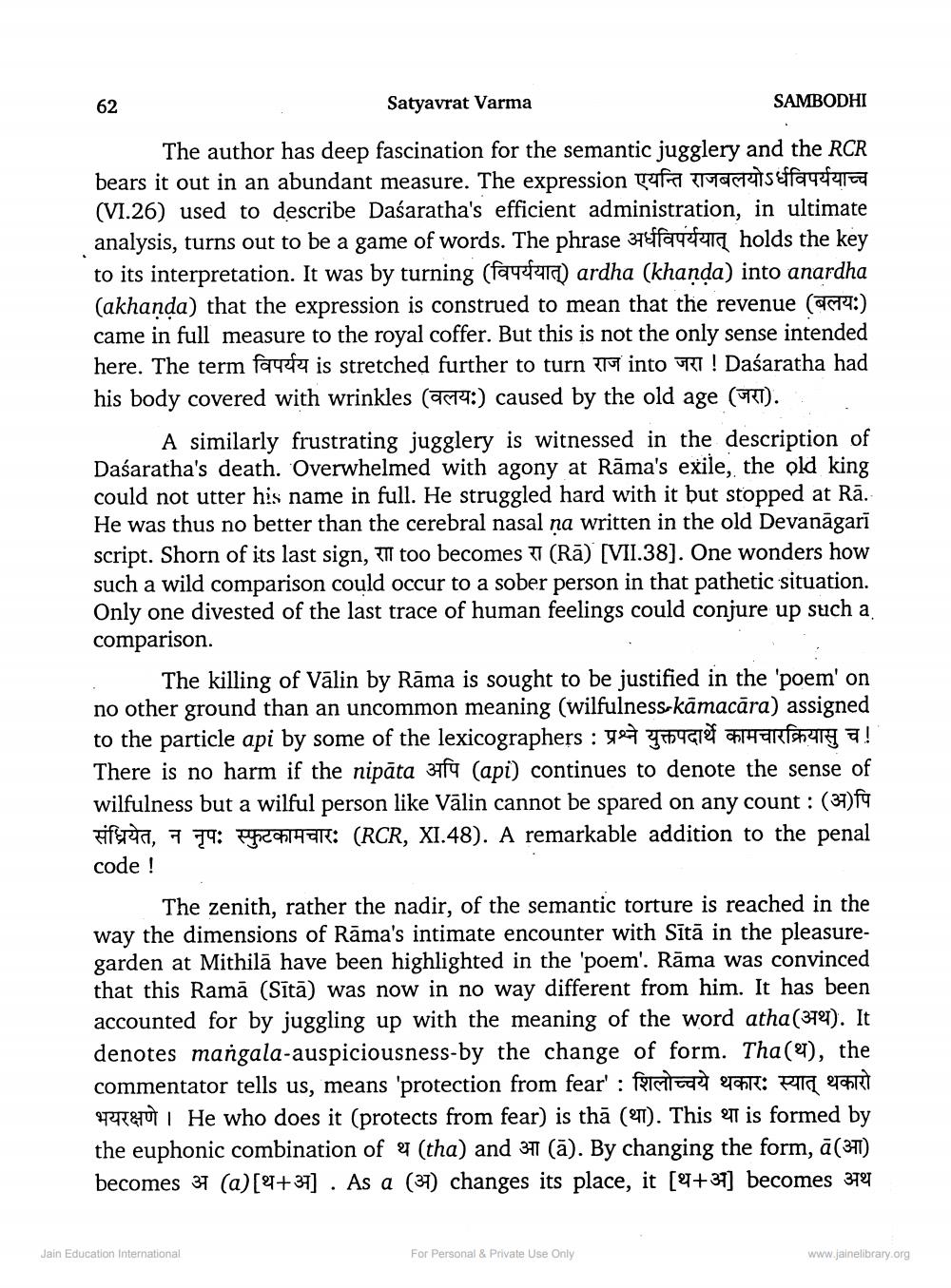________________
62
Satyavrat Varma
SAMBODHI
The author has deep fascination for the semantic jugglery and the RCR bears it out in an abundant measure. The expression of Tartseffafita (V1.26) used to describe Dasaratha's efficient administration, in ultimate analysis, turns out to be a game of words. The phrase 37effau felic holds the key to its interpretation. It was by turning (fayefancl) ardha (khanda) into anardha (akhanda) that the expression is construed to mean that the revenue (274:) came in full measure to the royal coffer. But this is not the only sense intended here. The term fauere is stretched further to turn T7 into URT ! Dasaratha had his body covered with wrinkles (247:) caused by the old age (FT).' .
A similarly frustrating jugglery is witnessed in the description of Daśaratha's death. Overwhelmed with agony at Rāma's exile, the old king could not utter his name in full. He struggled hard with it but stopped at Rā. He was thus no better than the cerebral nasal na written in the old Devanāgarī script. Shorn of its last sign, 3 too becomes 7 (Rā) [VII.38). One wonders how such a wild comparison could occur to a sober person in that pathetic situation. Only one divested of the last trace of human feelings could conjure up such a comparison
The killing of Vālin by Rāma is sought to be justified in the 'poem' on no other ground than an uncommon meaning (wilfulness-kāmacāra) assigned to the particle api by some of the lexicographers : प्रश्ने युक्तपदार्थे कामचारक्रियासु च ! There is no harm if the nipāta 39f9 (api) continues to denote the sense of wilfulness but a wilful person like Vālin cannot be spared on any count: (37) fq Fiferia, 7 74: ca 145R: (RCR, XI.48). A remarkable addition to the penal code!
The zenith, rather the nadir, of the semantic torture is reached in the way the dimensions of Rāma's intimate encounter with Sītā in the pleasuregarden at Mithilā have been highlighted in the 'poem'. Rāma was convinced that this Ramā (Sītā) was now in no way different from him. It has been accounted for by juggling up with the meaning of the word atha(372). It denotes mangala-auspiciousness-by the change of form. Tha(4), the commentator tells us, means 'protection from fear' : farcito gor: PITCL PORT PREU I He who does it (protects from fear) is thā (PM). This e11 is formed by the euphonic combination of 97 (tha) and 371 (ā). By changing the form, ā(37) becomes 37 (a)[21+31] . As a (3) changes its place, it [91+37] becomes 379
Jain Education International
For Personal & Private Use Only
www.jainelibrary.org




